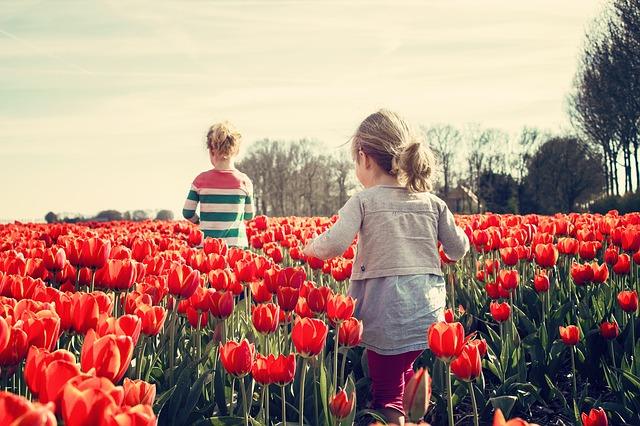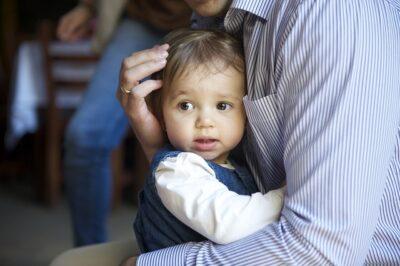What does it take to raise happy, well-adjusted kids? A UNICEF study broke this question down into five factors: housing and environment, behaviors and risk, education, health and safety and material well-being. They used these categories to determine which industrialized countries were getting it right.
A 2013 UNICEF report found that American kids ranked 26th – just above Lithuania, Latvia and Romania — out of 29 countries, and children in the United Kingdom ranked 16th. Kids in the Netherlands ranked first.
The report is a follow-up to a 2007 study that also showed the Netherlands in first place, with the U.S. and U.K. in the lowest two slots.
Those study results come as no surprise to Rina Mae Acosta and Michele Hutchison, the authors of the new book The Happiest Kids in the World. Acosta, who is American, and Hutchison, who is British, have first-hand experience in how differently the Dutch raise their children as compared with their native countries.
In their book, the two mothers, who are both married to Dutch men and are living in the Netherlands, identify several factors that are responsible for the sunny dispositions of Dutch children. The factors include more sleep for Dutch babies, less emphasis on academic achievement, more focus on family time and more involvement in childrearing by fathers.
More Sleep for Dutch Babies
Dutch parents guard the sleep time of their babies and are more careful not to overstimulate their babies than many American parents.
Awaken Your Child’s Love Of Learning And Put God Back Into History! Read More Here.
This extra sleep may help Dutch babies be well-adjusted. According to a study by Washington State University that was published in the European Journal of Developmental Psychology, Dutch babies appear to be more contented than American babies are.
In addition, Dutch parents use toys less frequently to play with their babies than do American parents.
Less Emphasis on Academic Achievement
In the Netherlands, academic education begins after children turn six. Grades are not emphasized, and children in primary school rarely have homework.
Dutch children play outdoors all year round in all weather, and they are usually unsupervised while they play. A popular parent saying is, “There’s no such thing as bad weather, only bad clothing.”
Children are given a large amount of freedom as compared with American children, often riding their bikes to and from school and visiting friends on their own.
More Focus on Family Time
“The Netherlands have a reputation for being a liberal country with a tolerance of sex, drugs and alcohol, yet beneath this lies a closely guarded secret: the Dutch are actually fairly conservative people,” according to the authors in an article they wrote for the UK’s Telegraph.
“At the heart of Dutch culture is a society of home-loving people who place the child firmly at the center. Parents have a healthy attitude towards their kids, seeing them as individuals rather than as extensions of themselves. They understand that achievement doesn’t necessarily lead to happiness, but that happiness can cultivate achievement.
“The Dutch have reined in the anxiety, stress and expectations of modern-day parenting, redefining the meaning of success and wellbeing. For them, success starts with happiness – that of their children and themselves.”
The authors stress that Dutch families value togetherness and do not attempt to outdo their neighbors with lavish birthday parties or fancy gifts.
Dads Are Very Involved
Dutch families seem to be ahead of the international curve when it comes to work-life balance. With the average Dutch worker spending an average of 29 hours a week on the job, Dutch parents have more time to spend with their kids.
The authors also report that competition between mothers – or “Mommy Wars” – occurs far less in the Netherlands than in the U.S. and the U.K.
Dutch dads take an equal role in raising their children, and Acosta and Hutchison say it is as common to see a father wearing a baby-carrier or pushing a pram as a mother.
Dutch parents strive to give their children clear directions, not options. They say, “I want you to…” rather than something vague.
Two common Dutch expressions that reflect this clear sense of discipline are “parenting is practicing what you preach,” and, “what the old cock crows, the young cock learns.”
If you have seen photos of bright-eyed, rosy-cheeked Dutch kids, you now know a few reasons why those kids look so happy.
And there is one more thing that may contribute to those fresh-faced smiles. It’s “hagelslag.”
Dutch parents and children alike frequently eat chocolate sprinkles on toast for breakfast. Sprinkles have a way of putting anyone in a good mood.
What is your reaction? Share your thoughts in the section below:
The Happiest Kids in the World by Rina Mae Acosta and Michele Hutchison was released in January on the UK, and it is set for an April 4 release in the U.S.
Awaken Your Child’s Love Of Learning And Put God Back Into History! Read More Here.
 Off The Grid News Better Ideas For Off The Grid Living
Off The Grid News Better Ideas For Off The Grid Living







